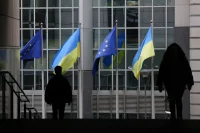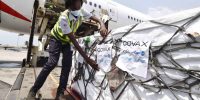Il n’y a qu’une voie à suivre à Gaza
Existe-t-il une possibilité de paix entre Israël et les Palestiniens, ou devons-nous simplement nous habituer à des guerres périodiques qui privent les deux parties de la tranquillité et de la stabilité qu’elles recherchent?
Il est facile d’être pessimiste. L’histoire de la région est jonchée de plans de paix qui ont échoué, de conférences diplomatiques qui se sont effondrées et de médiateurs complètement désabusés. Tout semble avoir été essayé, rien ne semble avoir fonctionné. Tout le monde se retrouve à rejeter la faute sur quelqu’un d’autre que soi.
Au début des années 1990, les Accords d’Oslo ont montré ce qu’il était possible de faire.… Seguir leyendo »















